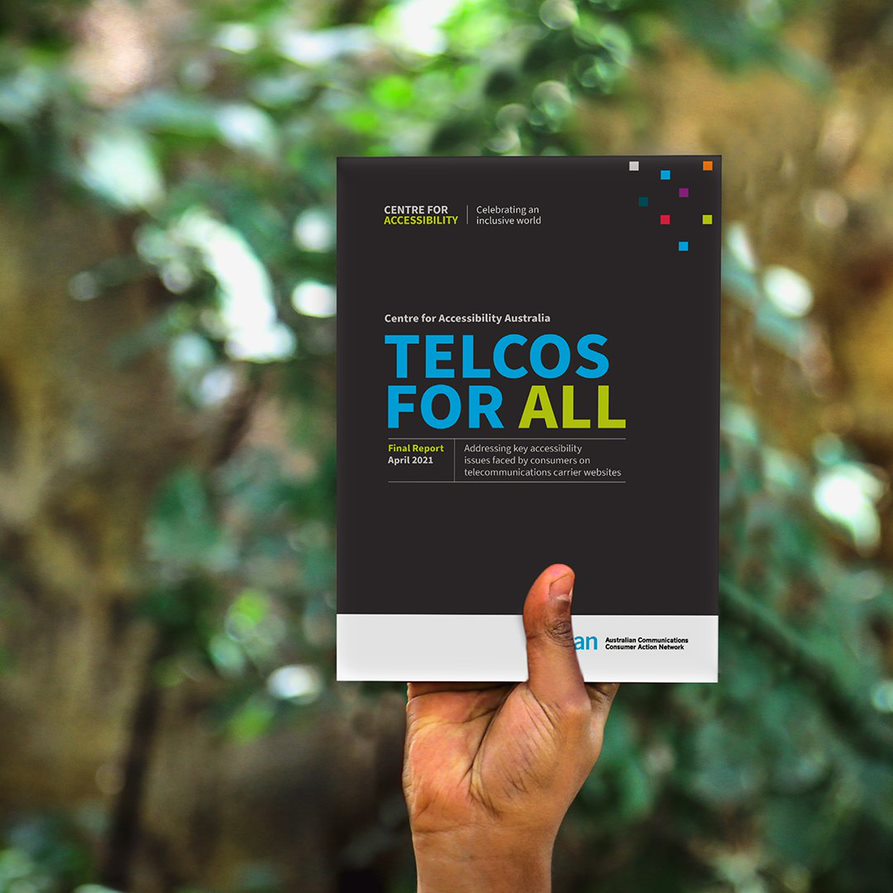ACCAN administers an Independent Grants Scheme aimed to support consumer research and consumer representation that helps us achieve our strategic goals
Western Sydney University
Indigenous people in Western Sydney are experiencing digital divide. This interdisciplinary project will co-design with an Indigenous scholar and will be overseen by an Indigenous Research Governance Committee. By building on established relationships with Indigenous residents in Western Sydney, the project will provide needed data on Indigenous digital exclusion in Western Sydney and will provide Indigenous co-designed recommendations for closing the digital gap.
Read more: In progress! First Nations Digital Inclusion in Western Sydney
Deakin University
This project will explore how communication is defined and implications for reforms to the laws of information privacy, telecommunications surveillance, and digital markets. The team will conduct focus groups with diverse communities to enhance consumer advocacy and representation in submissions to proposed reforms and improve consumer protections.
Digital Literacy Foundation
Working towards universal digital inclusion is critical. In partnership with local Council and community organisations, this project will operate locally-based, face-to-face digital mentoring services for people in the Hawkesbury region. Workshops will build on a successful pilot program focused on increasing consumers’ access to online information, communications products, and services.
With many services digitised, older Hawkesbury residents are increasingly isolated, as the region’s rivers, bushland, unsealed roads, and devastation following fires (2019) and multiple floods (2022) has reduced access to physical services. The Hawkesbury region has a higher proportion of 50 to 84-year-olds than Greater Sydney (Census 2021), a group which, according to the Australian Digital Inclusion Index, are more likely to experience digital exclusion. The program aims to improve access to communication channels with community, family and government, including telehealth, and provide opportunities for increased social connectedness, and participation in online social and economic activities.
Read more: In progress! Hawkesbury Digital Mentoring Program
South Australian Council on Intellectual Disability
People with intellectual disability are at greater risk to the dangers of the online environment. However, there is limited educational information presented in formats accessible to people with intellectual disability. This project will build on an existing co-designed introductory online safety workshop to develop a series of accessible training resources focused on online safety. A co-design approach will be used to develop, test and refine the products, and gather information about communications related barriers to inform future advocacy.
Visit SACID's website.
University of Technology Sydney
The project will map out policy options for developing a complaint-handling framework for digital platforms, addressing a critical need for the satisfactory resolution of complaints from consumers. The features of effective and accountable internal dispute resolution schemes and the options for an external complaint-handling scheme will be assessed.
Read more: Digital platform complaint handling: Options for an external dispute resolution scheme
Royal Melbourne Institute of Technology (RMIT)
The ability of small businesses (those with less than twenty employees) to adopt advanced digital services such as e-commerce solutions and cybersecurity services is vital for these businesses and for the economy. Recent surveys indicate that many are struggling to adapt to sudden changes due to Covid-19. This project aims to investigate how small retail businesses can enhance their growth and efficiency through the better use of advanced digital services from telecommunications providers.
Read more: Enhancing the digital adaptability of Australian small retail businesses
Charles Sturt University
Telecommunications accounts cannot be held jointly by multiple parties. "Family Plans" are commonly promoted as an economic option for multiple users. These plans have multiple devices (with multiple users) contracted to one person as the 'Customer'. This project investigates the surveillance risks (including call, message and location monitoring) that Family Plans present during ongoing relationships, in particular those at risk of domestic violence.
University of Melbourne
This project is an extension of research funded by the Melbourne Social Equity Institute (MSEI), undertaking a survey and focus groups with the residents (representing 39 language groups) of Carlton Public Housing Estate in central Melbourne to analyse their strategies for coping with limited connectivity. The ACCAN grant will be used to conduct one-on-one interviews with 12 residents and provide interpreting services.
University of Melbourne
Telcos are increasingly using chatbots and other forms of automated assistants to respond to their customers. There may be gains for consumers, but there are also the risks of harms, and this project seeks to investigate and recommend strategies to assist consumers to navigate these risks.
Wamboin Communications Action Group Inc.
This project assisted regional and rural areas to effectively engage with their local communities and build a business case for the implementation of network capabilities to support their current and future needs. The project delivered a set of resources that can be applied across regional, rural and remote areas to help communities identify local requirements to achieve better Internet connectivity to support their economic and social growth.
Read more: Achieve Better Broadband for Regional Communities
 Children and Media Australia (Formerly ACCM)
Children and Media Australia (Formerly ACCM)
Grant Round: 2020
Amount: $48,000
Read more: Apps Can Trap - Tips for Protecting Children’s Privacy
 Centre for Accessibility
Centre for Accessibility
In 2021, the Centre For Accessibility (CFA) Australia undertook research to improve the accessibility of websites and apps provided by the telecommunications sector.
